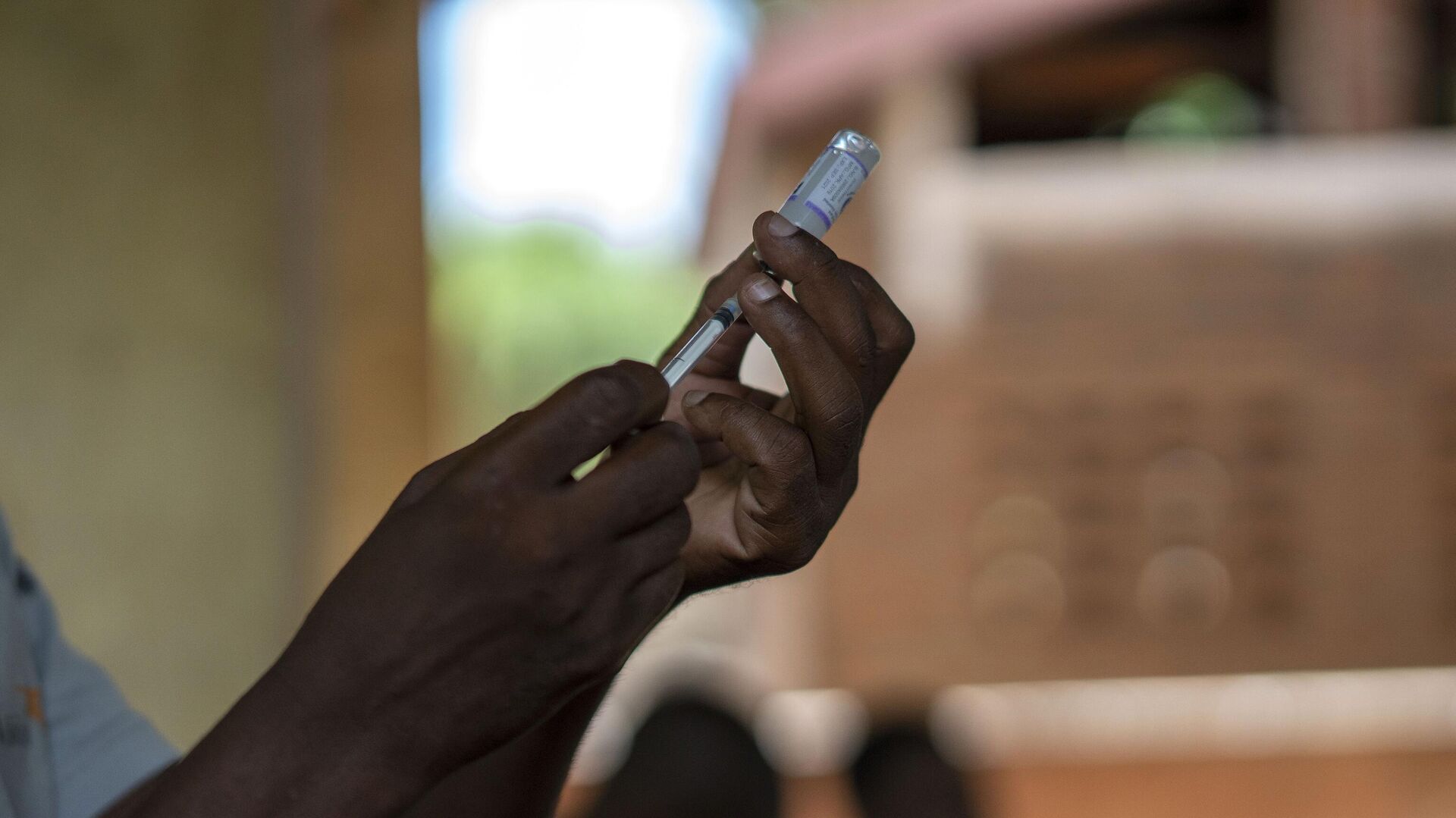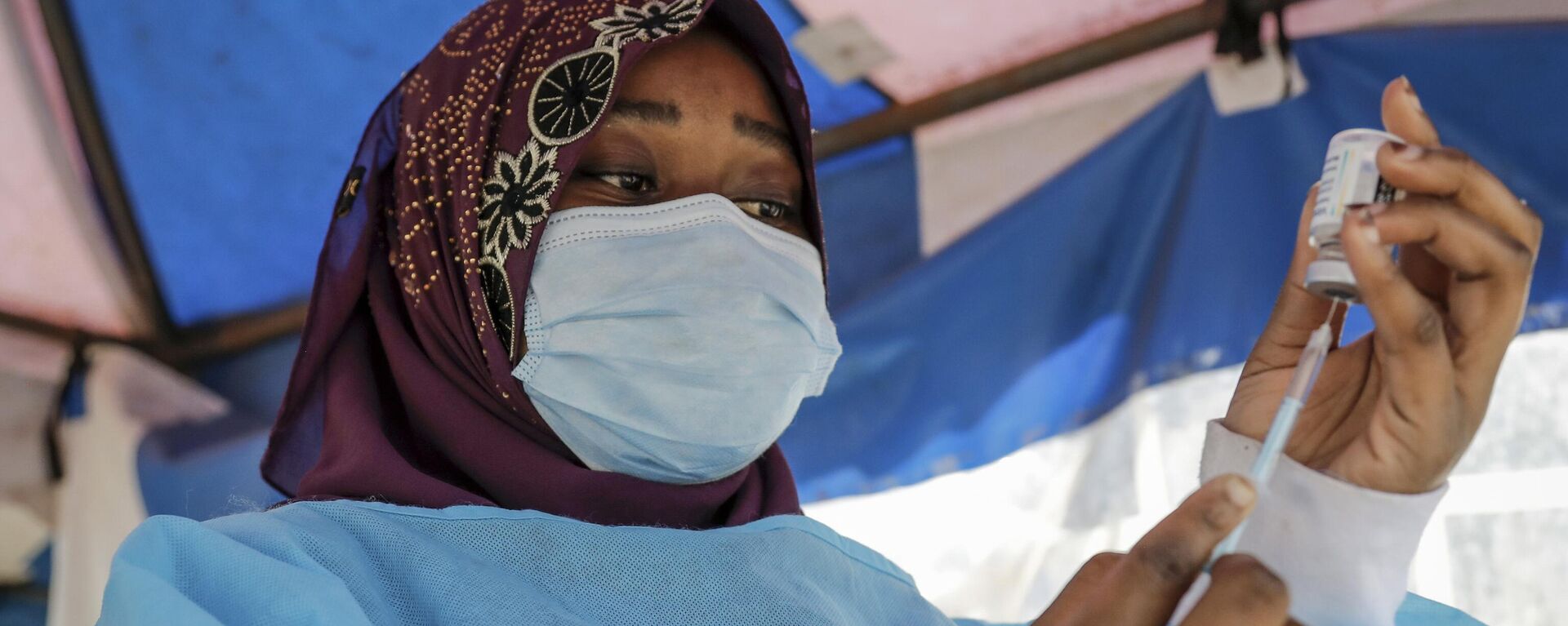https://en.sputniknews.africa/20240425/1066235860.html
'Humanity's Greatest Achievement': More Than 51 Million African Lives Saved Thanks to Vaccination
'Humanity's Greatest Achievement': More Than 51 Million African Lives Saved Thanks to Vaccination
Sputnik Africa
The annual World Immunization Week, as well as African Vaccination Week, began on Wednesday. The World Health Organization outlined global vaccination... 25.04.2024, Sputnik Africa
2024-04-25T15:19+0200
2024-04-25T15:19+0200
2024-04-25T15:33+0200
sub-saharan africa
world health organization (who)
disease
vaccine
world immunization week
death
united nations (un)
children
african vaccination week
https://cdn1.img.sputniknews.africa/img/07e7/04/16/1058775607_0:0:3069:1726_1920x0_80_0_0_5094f6fe515645596b863f60737c62d4.jpg
Approximately 51.2 million African people have been saved thanks to vaccination over the past half century, the World Health Organization shared on Wednesday.Vaccination against 14 illnesses has helped cut infant mortality by 40% worldwide and over 50% in the African region in the last 50 years.Overall, global immunization efforts have saved an estimated 154 million lives — or the equivalent of six lives every minute of every year — since 1974, when the WHO launched the Expanded Program on Immunization (EPI) initiative that aims to guarantee that all children have equal access to life-saving vaccines.Today, most African nations offer antigens for 13 diseases that can be prevented through vaccination, which is an increase from the original six diseases when the EPI was launched.The introduction of new vaccines, such as the groundbreaking malaria vaccine, as well as the expansion of existing vaccines, such as the one for HPV that guards against the primary cause of cervical cancer, has also paved the way for future generations in Africa to flourish, according to the WHO.Despite progress, the region continues to face challenges in achieving and maintaining high immunization coverage rates against most vaccine-preventable diseases. There are also challenges to ensuring equitable access to vaccines across the continent: a significant number of children have yet to receive a single dose of life-saving vaccines, while others are not receiving enough doses, the UN body warned.However, the WHO and its partners are working to close these gaps through the Big Catch-Up initiative, which aims to reach children who have been underserved or missed by routine vaccination programs. Initiatives such as the Zero-Dose Immunization Programme have also been created to provide vital health services to people in conflict-ridden and fragile areas.
https://en.sputniknews.africa/20240409/who-praises-progress-in-african-health-systems-while-identifying-areas-requiring-further-1065994147.html
Sputnik Africa
feedback@sputniknews.com
+74956456601
MIA „Rossiya Segodnya“
2024
Christina Glazkova
https://cdn1.img.sputniknews.africa/img/07e7/0b/07/1063380906_0:0:673:674_100x100_80_0_0_79628b4d0cd9f29291a57aa13bbf9e7a.jpg
Christina Glazkova
https://cdn1.img.sputniknews.africa/img/07e7/0b/07/1063380906_0:0:673:674_100x100_80_0_0_79628b4d0cd9f29291a57aa13bbf9e7a.jpg
News
en_EN
Sputnik Africa
feedback@sputniknews.com
+74956456601
MIA „Rossiya Segodnya“
Sputnik Africa
feedback@sputniknews.com
+74956456601
MIA „Rossiya Segodnya“
Christina Glazkova
https://cdn1.img.sputniknews.africa/img/07e7/0b/07/1063380906_0:0:673:674_100x100_80_0_0_79628b4d0cd9f29291a57aa13bbf9e7a.jpg
world health organization (who), disease, vaccine, world immunization week, death, united nations (un), children, african vaccination week
world health organization (who), disease, vaccine, world immunization week, death, united nations (un), children, african vaccination week
'Humanity's Greatest Achievement': More Than 51 Million African Lives Saved Thanks to Vaccination
15:19 25.04.2024 (Updated: 15:33 25.04.2024) Christina Glazkova
Writer / Editor
The annual World Immunization Week, as well as African Vaccination Week, began on Wednesday. The World Health Organization outlined global vaccination campaigns in the second half of last century as "one of humanity's greatest achievements." They've helped eradicate dangerous diseases and ensure more children than ever before survive and thrive.
Approximately
51.2 million African people have been saved thanks to vaccination over the past half century, the World Health Organization shared on Wednesday.
Vaccination against 14 illnesses has helped cut
infant mortality by
40% worldwide and
over 50% in the African region in the last 50 years.
Overall,
global immunization efforts have saved an estimated 154 million lives — or the equivalent of six lives every minute of every year — since 1974, when the WHO launched the Expanded Program on Immunization (EPI)
initiative that aims to guarantee that all children have equal access to life-saving vaccines.
Today, most African nations offer antigens for 13
diseases that can be prevented through vaccination, which is an increase from the original six diseases when the EPI was launched.
Over this relatively short period, truly impressive results have been achieved. Measles deaths have fallen, with an estimated 19.5 million deaths averted over the past 22 years. There was also a "sharp" decrease in mortality from meningitis - to 39% in 2019 compared to 2000. Furthermore, Africa has almost completely eliminated maternal and neonatal tetanus, and in 2022, the region was declared free of indigenous wild poliovirus, which is, as the WHO noted, "a historic public health achievement."
“From disease prevention to eradication, the success story of vaccines is a compelling one. Millions of people are alive and healthy today thanks to the protection vaccines offer,” Matshidiso Moeti, WHO Regional Director for Africa, was quoted in the statement as saying. “We have half a century of momentum and have accomplished so much. Now, we must sustain and expand vaccine equity to end the threat of vaccine-preventable diseases.”
The introduction of new vaccines, such as the groundbreaking malaria vaccine, as well as the expansion of existing vaccines, such as the one for HPV that guards against the primary cause of cervical
cancer, has also paved the way for future generations in Africa to flourish, according to the WHO.
Despite progress, the region continues to face challenges in achieving and maintaining high immunization coverage rates against most vaccine-preventable diseases. There are also challenges to ensuring equitable access to vaccines across the continent: a significant number of children have yet to receive a single dose of life-saving vaccines, while others are not receiving enough doses, the UN body warned.
However, the WHO and its partners are working to close these gaps through the Big Catch-Up initiative, which aims to reach children who have been underserved or missed by routine vaccination programs. Initiatives such as the Zero-Dose Immunization Programme have also been created to provide vital health services to people in
conflict-ridden and fragile areas.



